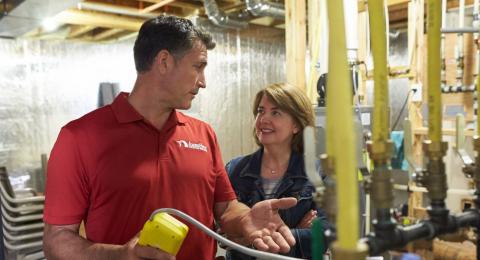During a comprehensive home inspection, the inspector conducts a thorough evaluation of the main electrical panel box and any subpanels that are present. They will also remove the cover from the panel box and determine whether or not the sizes of the wires are compatible with the size of the fuses or circuit breakers that have been installed. The inspector will also determine if the electrical system is properly grounded and look at wires at branch circuits. The main service line and the mast are examined for safety.
On the interior of the home, all of the accessible receptacles will be tested, too. The inspector will also look for exposed wires and improper splices as well as Romex™ wiring and stranded wiring that have been incorrectly used throughout the home. While inspecting the exterior of the home, the inspector will note whether or not ground fault circuit interrupters have been installed at the exterior receptacles.
Note: Any electrical items that are considered to be a safety concern will be noted in the AmeriSpec report. AmeriSpec always recommends that the repairs be done by a licensed electrician for everyone’s protection.
